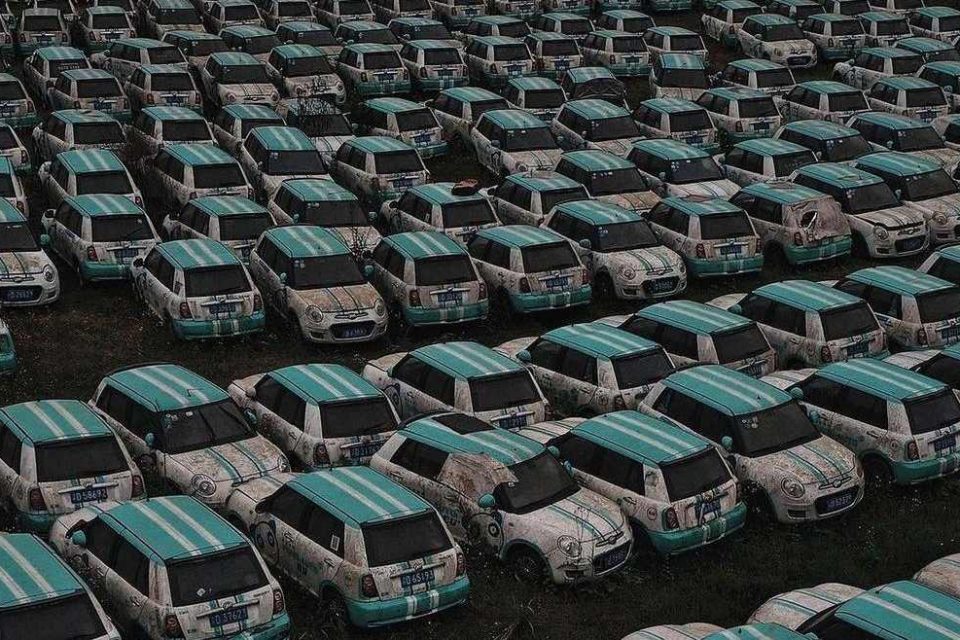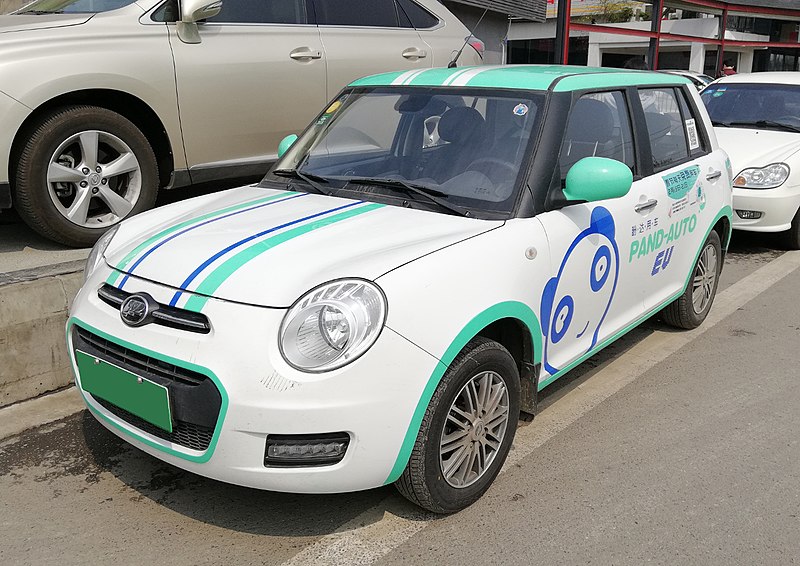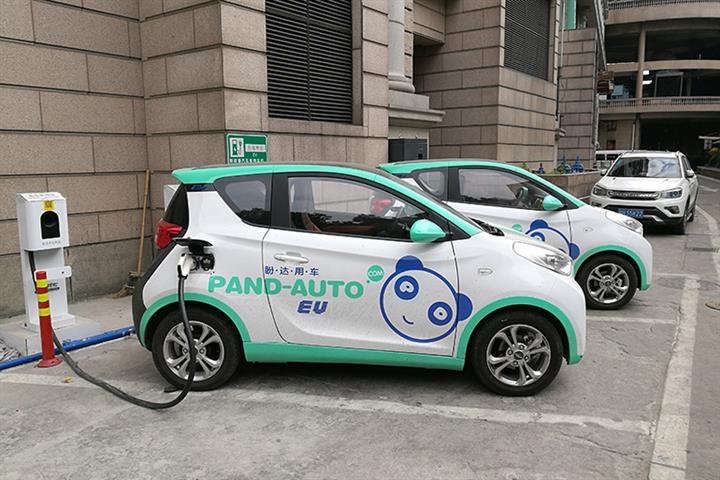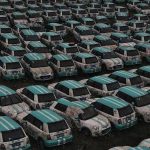This Chinese EV tech startup left thousands of its electric cars to rot after filing for bankruptcy

2016 was a hot year for bike-sharing in China. However, car-sharing became a business model sought after by venture capital firms and end-users. At the time, the car-sharing industry was dominated by tech startups, internet companies, vehicle manufacturers, and real estate developers with all of them trying to get a piece of the action.
In 2017, the overall financing amount of the shared car industry experienced explosive growth however by 2019 many investors realized that china’s sharing economy wasn’t as big a market some capital started to retreat. Then in May 2018, Chinese Internet giant Baidu and Panda Auto, an EV rental operator under the Chongqing-based automaker Lifan Group, jointly launched China’s first shared autonomous vehicle pilot program in Chongqing.
During the one-month trial operation, Panda Auto deployed six autonomous vehicles for the public in the Baidu-Panda Autonomous Vehicle Demonstration Park of Chongqing’s Liangjiang New Area. However, the result of the trial was underwhelming.
In February of this year, the Chinese Car-Hailing Platform Panda Auto shut down amid a debt crisis at the parent company Lifan. The electric car tech startup later filed for bankruptcy. The Lifan 330 EV 01 cars are left to rot after filing for bankruptcy. A Redditor first spotted the car lot. The unsold electric cars have become yet another relic of consumerism abandoned to rust and rot.
Founded in 2015, Panda Auto had over 20,000 cars and more than 4 million registered users. It operated in 12 cities including Hangzhou, Chengdu, and Zhengzhou. The platform had also secured a license to test autonomous driving in Chongqing.
Panda Auto was unable to refund user deposits within the agreed time period from last July because of the impact of the crisis at Lifan. Lifan was acquired by Geely Auto Group last year after racking up debts of over CNY30 billion (USD4.64 billion).
The parent company Lifan Group was founded in 1992 by Yin Mingshan. Lifan is the maker of Lifan 330 EV 01. The company also develops, manufactures, and sells motorcycles, cars, and gasoline engines.
Below are photos of the Lifan 330 EV 01 before they were left to rot.


According to China Insights, in the last two years, people in China have been spotting thousands of abandoned new cars that comply with government requirements. The cars include license plates and annual inspection marks. So, what’s really going on?
In the video below, China Insights explained how the Chinese government’s volatile policies have led to broken capital chains for many companies in the business of online car-sharing to abandon the new cars. Because their business operations are no longer sustainable, some companies chose to abandon these low-end vehicles.

